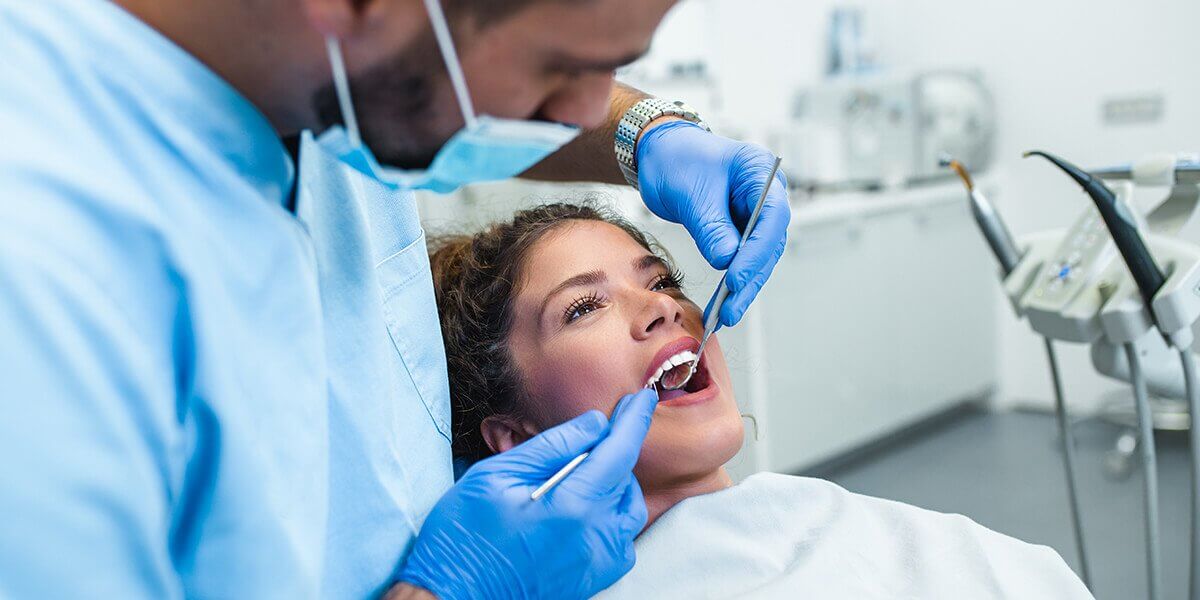Did You Know?
- Eating disorders e.g. anorexia nervosa, bulimia nervosa and binge eating disorder affect not only your general health but your oral health as well.
- Common oral problems caused by eating disorders include acid erosion of the surface of the teeth, dry mouth also known as xerostomia and tooth decay also known as caries.

Bulimia Nervosa
- Individuals with bulimia nervosa tend to experience the most damage to their teeth as a result of frequent vomiting.
- Vomit contains stomach or gastric acid, which is highly erosive and if in frequent contact with the teeth will wear the enamel surface away.
- When the enamel layer has been worn away the next layers of the tooth such as the dentine and the pulp may become exposed leading to pain and sensitivity.
- Pain and sensitivity may be noticed more on eating/drinking hot, cold or sweet foods/drinks.
- The teeth will begin to change in appearance and look smoother, glassy and yellowish.
- Acid erosion of the teeth may also be caused by acidic foods/drinks. The most hazardous are fruit and fruit juices and carbonated or “fizzy” drinks.
- Individuals with bulimia nervosa may also experience swelling of the salivary glands caused by frequent vomiting.
- Frequent bingeing on sugary snacks and drinks may lead to tooth decay or caries.
Anorexia Nervosa
- Due to a lack of nutrients, individuals with anorexia nervosa may develop osteoporosis, a condition affecting the bones that can lead to weakening of the bones in the jaw and the loss of teeth.
- Those who have been prescribed medication to combat their condition such as dextrose tablets and sucrose drinks containing Vitamin C may also suffer from acid erosion and tooth decay.
Binge Eating Disorder
- Binge eating disorder which involves frequent bingeing on sugary foods and drinks may lead to the development of tooth decay.
How Tooth Decay Is Caused
- In our mouths, plaque bacteria are present which attach themselves to the surface of the teeth.
- When sugary foods/drinks are consumed, the plaque bacteria change the sugar into acid.
- This acid is harmful to the teeth and immediately begins to “attack” the outer surface. This process is known as demineralisation.
- Once the consumption of sugary foods/drinks is finished, saliva in our mouths acts as a neutraliser for the acid and begins to repair the damage done to the surface of the teeth. This process is known as remineralisation and may take up to an hour to complete.
- If sugary foods/drinks are consumed again before the saliva has finished repairing the tooth, it will not have time to restore the tooth to its original healthy condition and a hole will form in the tooth surface – this is known as tooth decay.
- Therefore it is how many times a day sugar is consumed that is harmful rather than the amount; this is why sugary foods/drinks should be consumed all at once and at mealtimes only. Sugar free snacks and water only should be eaten/drank between meals.
How To Protect Your Teeth
- Ideally teeth should be brushed twice a day using a small headed, medium bristled toothbrush and fluoride toothpaste (1500 parts per million fluoride).
- A fluoride mouthwash should be used either daily or weekly according to the manufacturer’s instructions.
- It is important to clean between the teeth and below the gum line, this can be done using dental floss or interdental brushes.
- Following an episode of vomiting, it is advisable to rinse the mouth out with water or ideally a fluoride mouthwash to avoid the effects of gastric acid on the teeth.
- After vomiting, teeth should not be brushed for at least an hour to allow the acid conditions created in the mouth to settle down. If the teeth are brushed immediately after vomiting, acid is brushed directly into the tooth surface causing further destruction.
- After bingeing on sugary foods/drinks, again the mouth should be rinsed with water or a fluoride mouthwash, taking care not to exceed the recommended dose. Ideally the teeth should be brushed before eating, but if this is not practical again wait at least an hour after sugar consumption.
- If pain and sensitivity are experienced, the use of a fluoride mouthwash or “sensitive” toothpaste may be beneficial. Ask your dentist, dental hygienist or dental therapist for advice.
- It is important to visit the dentist regularly for check-ups.

